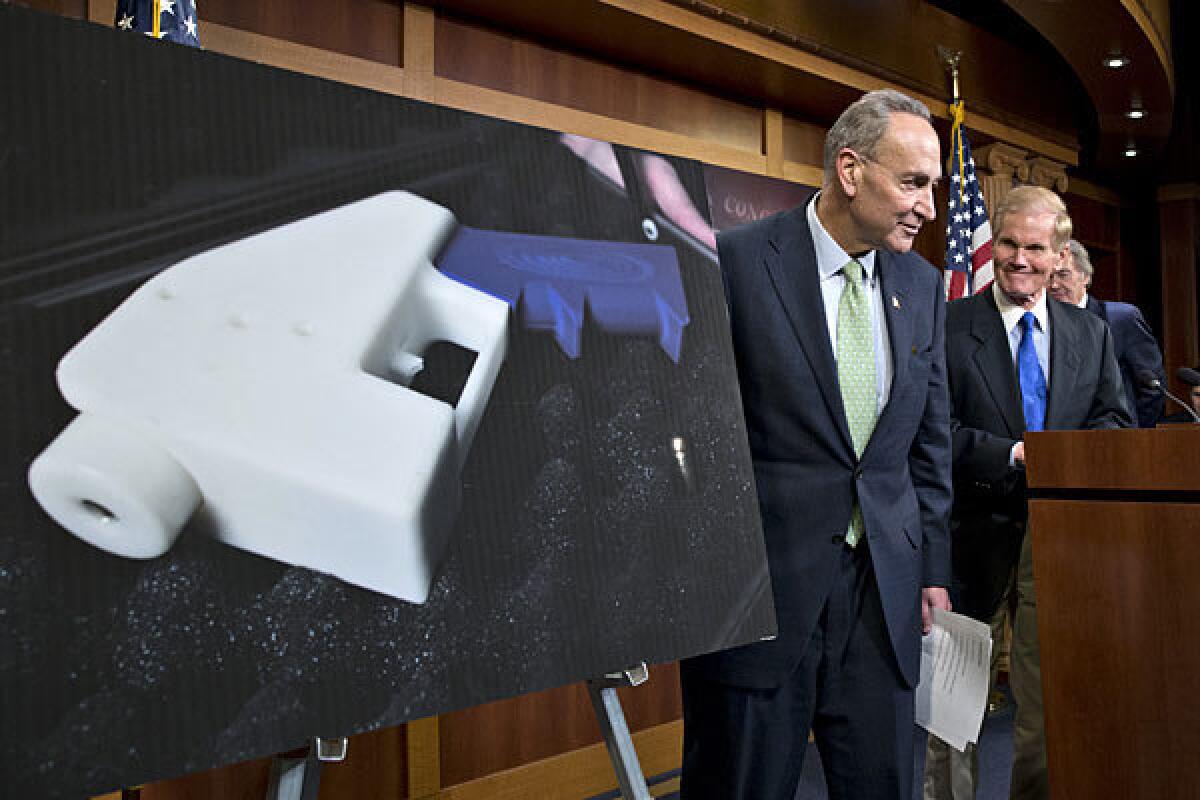Senate sends plastic gun restrictions to Obama for signature

WASHINGTON – The Senate on Monday agreed to extend by another decade a ban on plastic guns that can evade traditional security screening, after an effort to include stronger limits was rejected.
The renewed Undetectable Firearms Act, which is due to expire at midnight, now goes to President Obama for his signature.
First passed in 1988 and signed by President Reagan, the law requires that plastic guns contain enough metal to set off a metal detector or appear in X-ray scanners. It has been renewed twice before, under Presidents Clinton and George W. Bush, each time with little opposition.
At a time when more ambitious gun safety legislation has failed to advance in Congress, the Senate acted to approve the extension without a formal roll call vote, one week after the House agreed to it by a voice vote.
Still, advocates of stricter gun measures lamented that the renewed measure does not go far enough. Sen. Charles E. Schumer (D-N.Y.) sought to add a provision that would require plastic guns, including those that might be produced by new 3-D printing technology, to include metal as a permanent component. A design for such an all-plastic 3-D weapon was posted online briefly this summer, but was removed after complaints by law enforcement..
Sen. Chris Murphy (D-Conn.) said it should be a “great source of embarrassment” for the Senate that it failed to enact such a “common-sense” addition, particularly the week the nation observes the first anniversary of the Newtown school shooting in his state.
“This isn’t just a perceived or imagined threat,” Murphy said. “This is real. This is now.”
Senate Republicans resisted Schumer’s amendment, which also would have extended the ban by only one year instead of 10, as a political stunt.
“If anybody in the Senate is so concerned about what they consider to be loopholes in the law, this obviously should have been done through hearings and the introduction of legislation long ago,” said Sen. Charles E. Grassley (R-Iowa), the top Republican on the Judiciary Committee.
Twitter: @mikememoli
More to Read
Get the L.A. Times Politics newsletter
Deeply reported insights into legislation, politics and policy from Sacramento, Washington and beyond. In your inbox three times per week.
You may occasionally receive promotional content from the Los Angeles Times.











